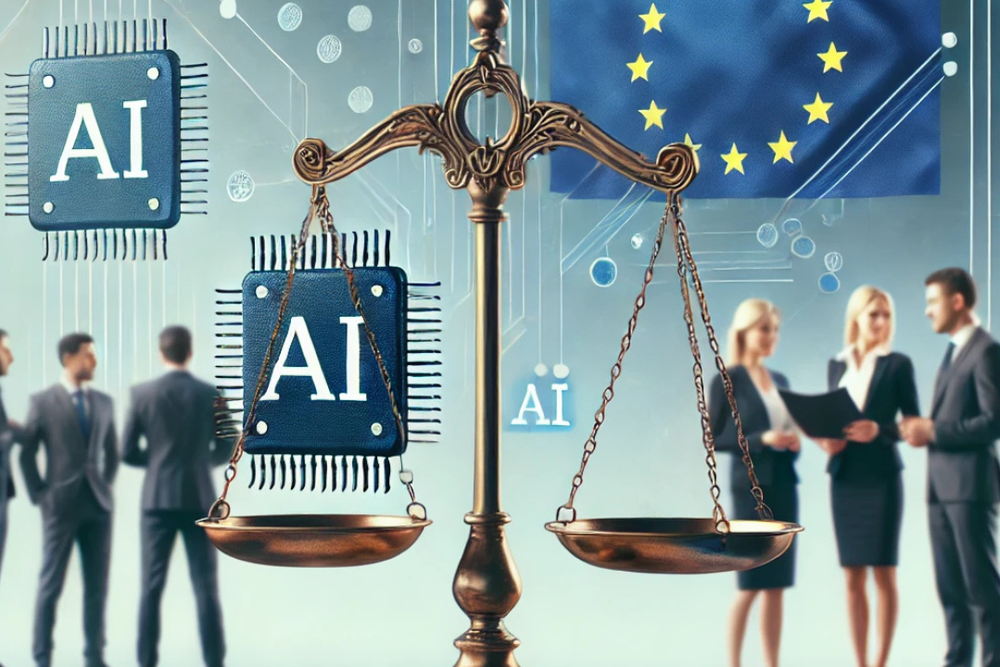With the AI Act, the European Union has established a fundamental regulatory framework for the use of artificial intelligence (AI). This comprehensive law came into effect on August 1, 2024, and sets clear standards for companies that use or offer AI technologies. Since February 2, 2025, companies must also ensure that their employees are adequately trained in the use of AI systems. But what are the practical implications and what steps should you as a company take now?
The AI Act at A Glance
The AI Act categorizes AI systems based on their risk potential:
- Prohibited applications: Systems with unacceptable risks, such as social scoring or behavioral manipulation.
- High risk: AI in safety-critical areas like medicine or justice is subject to strict regulations.
- Medium risk: Transparency obligations for AI-supported systems, such as interactive chatbots.
- Low risk: Barely regulated AI applications, including image and text editing tools.
Mandatory AI Training from February 2025
Since February 2, 2025, companies are required to provide their employees with basic knowledge in handling AI. This includes:
- Understanding AI: How AI functions and what it can do
- Awareness of risks: Issues like data manipulation and ethical challenges
- Safe and responsible AI usage: Ensuring compliance with best practices
These requirements apply to all companies, regardless of size or the risk category of their AI applications. The AI Act mandates structured training programs to guarantee the responsible use of AI in different work environments.
Why Is AI Training Essential?
While AI offers many advantages, it also introduces new risks. Data protection issues, security vulnerabilities or incorrect AI-driven decisions can have serious consequences. Therefore, the AI Act requires:
- Robust AI systems: Protection against manipulation and cyberattacks
- Transparency and explainability: Clear documentation of AI decision-making processes
- Strict safety standards: High-risk applications must undergo certification
Fulfill the requirements of the AI Act
Prepare your company optimally for the upcoming legal requirements. To further ease the implementation of AI, we recommend using our AI checklist beforehand. It helps you consider the key aspects – from identifying relevant processes to defining KPIs and involving the right people. This checklist will lay the foundation for the successful and smooth integration of AI into your business strategy.
Conclusion: New Obligations, but also Opportunities
The AI Act presents new requirements for businesses, but it also provides a clear opportunity to deploy AI safely and effectively. With our AI checklist, you are well-equipped for a first step to successfully integrate AI while fulfilling legal obligations. Act now to prepare your company for the future of AI!
